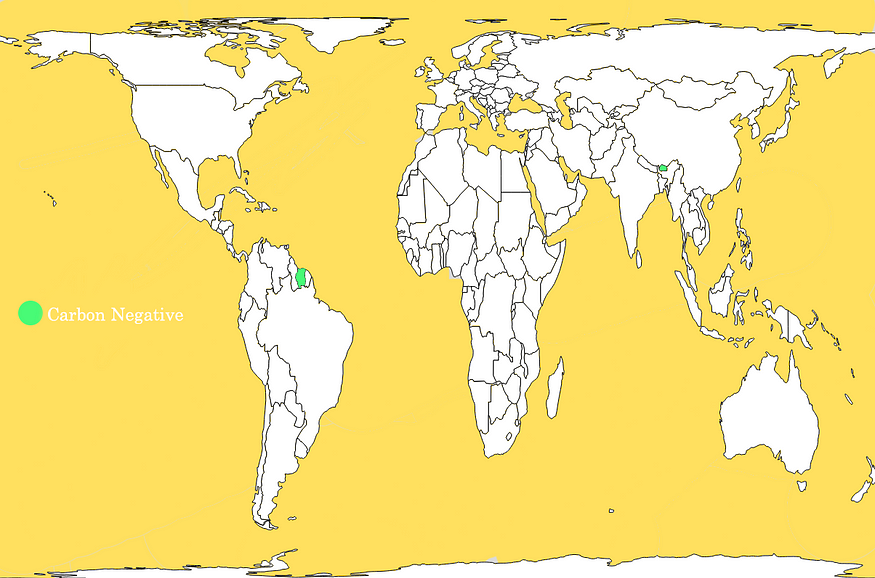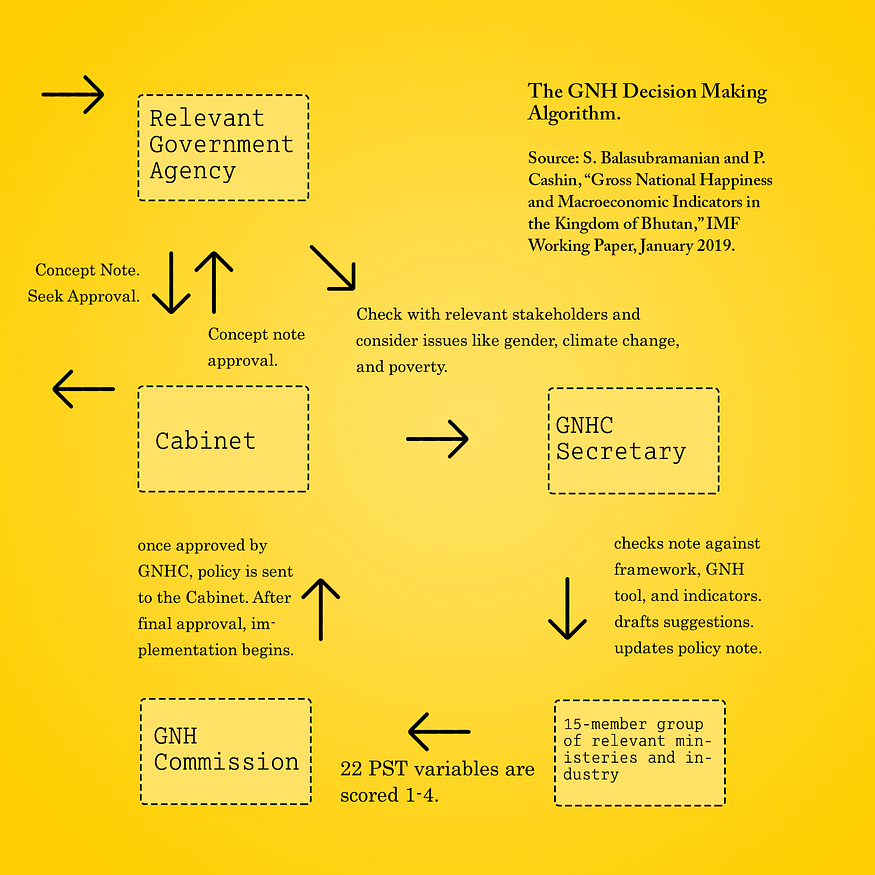So Your Country is Carbon Negative, What Next?
Aug 25th, 2022
Every organic thing on planet Earth, by definition, is made of carbon. You, your pet, the potted plant in your hallway, everything. Carbon is how living things interact with the world. Humans exhale it into the air. Trees take it in, add sunlight and grow, letting out oxygen. When organic things die, they take their carbon matter to the grave. They decompose as they become food for bacteria and plants. And that is how the carbon cycle is supposed to work. It was completely changed, however, when humans found ways to exhume carbon matter from the dead to use as fuel. The trouble is when you burn organic matter for fuel, carbon doesn’t just go away. It interacts with the heat and the air to form carbon monoxide and dioxide among others. In the natural carbon cycle, these would be cleaned out of the air by trees and other plants. But we’re burning too much and there’s too much carbon for our plants to clean. (thought of it this way, the carbon in our air that haunts us now comes from our dead ancestors)
When we’re putting more carbon in the air than our system can clean, the system is said to be carbon positive. If you’re putting in just as much carbon as you can clean, you are carbon neutral. And the rare system that is capable of cleaning more carbon than it puts out is called carbon negative. Bhutan has a unique distinction of being (edit) one of only two carbon-negative countries in the world. According to a speech PM Tshering Tobgay gave at the UN in 2015, Bhutan’s forests remove 6.3 million tonnes of carbon dioxide from the air every year. Our people produce about 2.4 million tonnes. This achievement is no accident. It is the result of careful planning and philosophy, coupled with cultural respect for the environment. Where some think of nature as there for humans to exploit and make value out of — including when they talk about the green economy — the Bhutanese people think of it as a separate thing, with its rights and its value, beyond what humans cast on it. This is why some construction projects in Bhutan begin with rituals asking deities permission to develop the land. It is why we believe trees house deities. Why some mountains must not be climbed. When you combine this sort of cultural deference to nature with a philosophy developed from it, GNH, you get a country where the people instinctively watch their carbon footprint and actively keep nature alive.

Here’s the thing though: It might not save the world. It might not even save us. Think about it this way: if the trees of Bhutan remove more carbon dioxide than its people produce, where do they get the carbon dioxide? From outside Bhutan. It may seem obvious and harmless, but this is a brutal truth: Nature doesn’t respect sovereign boundary lines. So, this idea of a “carbon negative” country is functionally limited. It can tell us the country and its people are mindful and respectful of the environment and its challenges. It can tell us the country is most likely sustainable and in tune with its natural environment.

But overall, in terms of how the world will be saved from devastation by climate change, a “carbon negative country” is an empty epithet. We will still see a great deal of climate change in Bhutan. The differential in our production and sequestration of carbon dioxide is practically insignificant in the larger picture (below). And it’s not like we could use our model example to force others to become better, either. As long as there are governments and leaders unserious about climate change in power, no amount of good examples will work. Look, for example, at the Trump administration leaving the Paris Accord. Their excuse is that regulations from this agreement will not restrict China and India effectively, and that would give them a competitive edge over America.

It is ignorant of historical contribution to the current carbon build-up (America is at ~25%), and of per capita calculations (an American has a carbon footprint 2 times larger than a Chinese’s and 9 times an Indian’s).
As well, these nations will not take the Bhutanese model seriously. And rightfully so. Bhutan’s political-economic structure is nowhere as beholden to vested interests. Socioeconomic development, which is often the argument of capital, is just 1/4th of the GNH model. Any government project or major economic venture must be vetted and considered for their effect on the environment, culture, and community (this pillar is listed as good governance but its domains and indicators are about people and community). Most other countries — and all the major countries — are so deeply beholden to the interests of capital that to suggest a consideration other than GDP growth or number of jobs created or managed inflation is a mortal sin. Look, for example, at China, whose impressive growth figures are partially down to a growing housing bubble. To keep their growth rate high, the government encourages the construction of new infrastructure, including cities. These projects are no doubt harmful to the environment (including their “ecocities”) and the truth is no one even lives in them (estimates are above 60 million empty apartment units across China).

They are purely Potemkin structures meant to prop up the illusion of growth as measured by GDP. They exist only because China considers economic development inviolable to their cause. If a model like GNH was applied there, most of these projects would never be greenlit. Another example is the Keystone Pipeline, which was this week revealed to be leaking. Only a government bound to the interests of oil and money would allow the rights of its people to be exploited for a project as transparently problematic as the XL pipeline. Look at any environmental justice issue anywhere in the US or the world, and you would find it to be the result of a choice between environment/community and capital. They happened primarily because governments sided with economics. GNH is the antithesis of that. It forces governments to consider people and nature as they have money. Remember here that it is often money that picks who forms the government. And when that is the case, how likely is it that a government will choose to follow the antithetical? That is another large question but that’s not the point here, the point is that the model that makes Bhutan carbon negative is not likely to be adopted by others. If such a comprehensive policy that requires so much planning was suggested in the US, certain groups would die crying Red Tape.

And this leads to the point of this article. As a Bhutanese, I often feel it my responsibility to understand what makes my country good and bad, and how I can spread a good message to my friends abroad. Here is where I get stuck. How can other countries put themselves on the path to carbon negativity when the reason that makes the only carbon negative country carbon negative is unlikely to be adopted? What more can I say than a general, “join a climate strike,” “get involved in democracy,” “engage in a revolution”? Or beyond endorsements like “elect Bernie Sanders”? What is my role in saving the world and how much of it is down to my identity as a Bhutanese? And what can Bhutanese folks do?
What Next? — Tell Your Story
It was in an environmental sustainability class that I first realized how differently we think of the world than others, especially those from the west (not counting native peoples, who are often guardians of nature). Theirs is an anthropocentric view of the world. The wilderness is there like levels in a video game, waiting to be conquered by the protagonist, the humans. Everything in this wilderness can be converted into private property and expropriated to create “value.” Therefore, the value of the tree is not that it produces clean air or fruits or shelters animals, but that it produces X amount of wood that can be sold for X amount of money or it produces X amount of clean air that can “offset” pollutions from our other activities or that it covers land on which you can develop real estate. The value of a frog is not that it is a sentient who has a life whether or not humans validate it, but that it can keep an area clean of mosquitoes or other vectors. The center of the world in this mindset is humans. Everything else is there to be used for their survival.
So, it surprises my friends, as it surprised my classmates when I tell them that Bhutanese people think of nature differently. When the Buddha was on the cusp of enlightenment, King Mara, the demon king, tried to sow doubt in his mind by saying, “you say you are ready to enlighten but in truth, you have not done enough good things to achieve Nirvana.” This doubt was beaten and the Buddha reassured when a deity came from the Earth holding beads of soil saying, “I can roll all the soil of the Earth into beads this small and count them, but I cannot count the number of good deeds this Bodhisattva has done.” The message that the Buddha’s final hurdle was solved by the Earth is important but not as important as the belief that there is a deity of the Earth who keeps an account of our lives. This deity is not there to be exploited. She exists, as nature exists, whether or not humans acknowledge her (this also solves the “if a tree falls in the middle of a forest” question — it does). It is true for all of nature. As I said above, before undertaking construction projects, some Bhutanese conduct rituals to ask the guardian deities for permission. The point here isn’t the deities but the rituals. The deities represent all of nature, and seen this way, these rituals are simply humans paying respects to the environment and asking for signs to “develop” it. In the same way, animals are not in nature to be your food. They suffer alongside you in the Samsara and would be here even if you weren’t. I believe that when Buddhists say we’ve been reborn so many times every sentient being has been our mother at least once, I see it as saying we need to treat all animals and living things as we would treat our loving mother.
In this mindset, the world isn’t built around humans. The world has always existed, and humans have only come to inhabit it for a little time. And to respect that is to respect that the natural environment is valuable by itself. Anyone who thinks this way will be careful about their ecological footprint. And so that’s the thing Bhutanese people need to do. Tell your stories so people can learn how differently we think about nature. Tell it over and over again. In my experience, Bhutan is different enough that our stories can substantially improve the world.